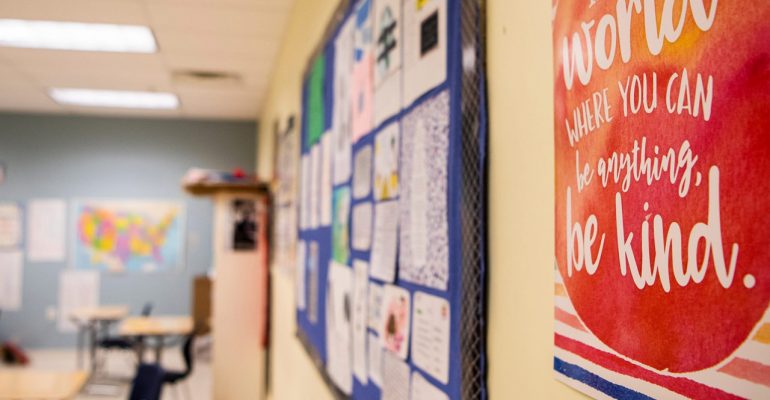Here’s what educators will learn about Islam after NJ teacher’s ‘terrorist’ remark
February 18, 2022 2024-03-05 17:29Here’s what educators will learn about Islam after NJ teacher’s ‘terrorist’ remark

Here’s what educators will learn about Islam after NJ teacher’s ‘terrorist’ remark
Ridgefield educators will learn about Muslim students’ faith in a training session Friday covering topics including religious holidays, misconceptions about Islam and the meaning of commonly used terms.
The online training is set to take place four months after a teacher was accused of telling a high school student who is Muslim and Arab American “we don’t negotiate with terrorists,” after the student asked for a homework extension. The incident sparked headlines across the globe, a district investigation and calls for dialogue from Muslim leaders.
About 300 teachers, aides and administrators will participate in the 90-minute training, which will be offered during a professional development session by the New Jersey chapter of the Council on American-Islamic Relations, a Muslim advocacy group.
The training was planned in conversations with district leaders and CAIR-NJ Executive Director Selaedin Maksut following the Oct. 20 incident at Ridgefield Memorial High School.
The lessons will include learning about holidays and terms like hijab, the headscarf worn by some Muslim women and girls for cultural identity, piety and modesty. Educators will also hear about misconceptions about Islam and will learn, for instance, that just 20% of Muslims are from the Middle East. A racially and ethnically diverse faith group, they are also Southeast Asian, Hispanic and African American, CAIR will note.
They will learn about misunderstood terms like “Allahu Akbar,” meaning “God is the greatest,” which is commonly used to show gratitude and praise to God. The group is providing the training program for free.
Maksut, who will lead the session, will talk about the ways schools can accommodate Muslim students, such as having a quiet place for prayer or allowing students who fast during the Ramadan holy month to spend a lunch period outside the cafeteria. Some parents may also want to keep children out of sex education classes or coed gym activities and dances because of a focus on modesty in their faith, CAIR says in an educators’ guide.
Source: NorthJersey.com








